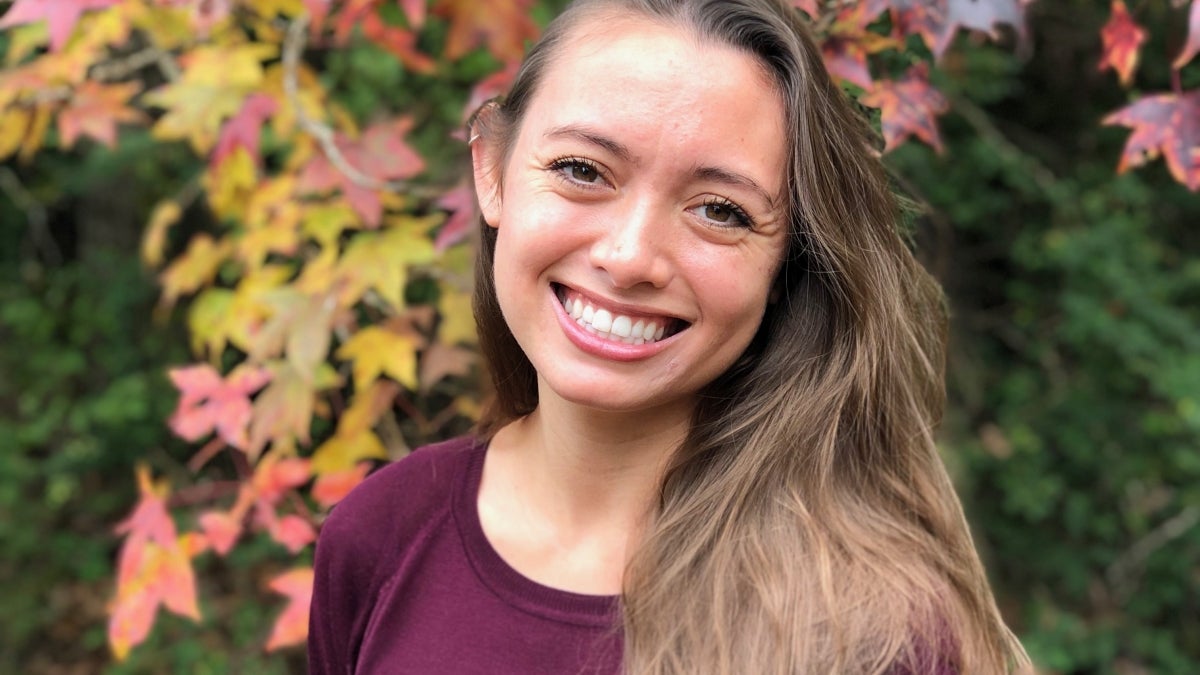After finding her calling, ESL grad will serve those in need through language

Jenifer Fedun
Editor’s note: This is part of a series of profiles for fall 2018 commencement. Read about more graduates.
A passion for working with different cultures and languages that began on a summer trip to Russia as a nursing undergraduate came full circle when Jenifer Fedun recently found herself back in the country, this time as an Arizona State University online graduate student working toward her TESOL master’s degree through the College of Liberal Arts and Sciences.
The Los Angeles native was prompted to switch from nursing to ESLEnglish as a Second Language over the course of four years in an international service program at California Baptist University that took her not only to Russia, but also China, India and Taiwan, where she helped lead ESL lessons in classrooms and found it very rewarding.
Fedun’s own late mother was an immigrant who came to the U.S. from the Philippines with her parents and 11 siblings. Along the way, they experienced challenges that included racism, separation and financial hardship, but they ultimately found success and happiness in their new home country. Fedun said their stories inspired her to use her skills in ways that can make similar experiences easier for immigrants and refugees.
“In general, I just want to be able to help immigrants and give them tools to have a successful start and future in America,” Fedun said. “My mother and her family were immigrants and have been successful in this country, and I want that for all immigrants and/or refugees I meet.”
Fedun talked to ASU Now about finding her calling, maintaining straight-A’s and serving communities in need.
Question: What was your “aha” moment, when you realized you wanted to study the field you majored in?
Answer: My “aha” moment occurred during the summer after my first year as an undergraduate at California Baptist University. I was originally a nursing major but after doing a nursing internship, I started to have doubts about whether I could see myself doing it long term. It was not until I was overseas in Russia during the summer working with orphans that I realized I loved working with people from different cultures and who speak different languages. One of our translators casually told me, “You know, if you teach English, you can do this all the time.” From that moment on, my passion for teaching English as a second language grew and took me to many different countries. My ASU master’s program even brought me back to Russia — where it all started — to teach ESL for my internship.
Q: What’s something you learned while at ASU — in the classroom or otherwise — that surprised you or changed your perspective?
A: It was not until I took my “approaches to research” class that I realized how much time, research and effort went into making a single scholarly article, paper and/or study. It made me have a profound respect for the scholars who dedicate their time to the furthering of knowledge in their field and inspired me to have such a work ethic.
Q: Why did you choose ASU?
A: I chose ASU because I saw it was one of the top online graduate schools and had the exact graduate major that I wanted to study.
Q: Which professor taught you the most important lesson while at ASU?
A: Ruby Macksoud, my professor for my internship class, taught me the importance of experience. There is only so much you can learn from books, but you will learn the most by putting what you have read and learned to practice.
Q: What’s the best piece of advice you’d give to those still in school?
A: Do your best and God will take care of the rest. Remember that where God guides, he provides, and he will get you through even the hardest of times in school and in life. Also, remember that it always seems impossible until it’s done; if it were easy, everyone would do it; and it will be 100 percent worth it.
Q: What are your plans after graduation?
A: I plan on becoming an ESL professor at a community college or university. In general, I just want to be able to help immigrants and give them tools to have a successful start and future in America. My mother and her family were immigrants and have been successful in this country, and I want that for all immigrants and/or refugees I meet.
Q: If someone gave you $40 million to solve one problem on our planet, what would you tackle?
A: I would create centers that would provide free education, housing, health care, food and job training for refugees and immigrants entering this country.
More Arts, humanities and education

Grammy-winning producer Timbaland to headline ASU music industry conference
The Arizona State University Popular Music program’s Music Industry Career Conference is set to provide students with exposure to…

ASU Gammage brings the best of Broadway to the 2025–26 season
ASU Gammage has announced its 2025–2026 Desert Financial Broadway Across America-Arizona season with a lineup of Broadway shows…

March Mammal Madness hypes science, storytelling in the classroom and beyond
In classrooms throughout the country, the buzz around March Mammal Madness starts long before the tournament begins. For…